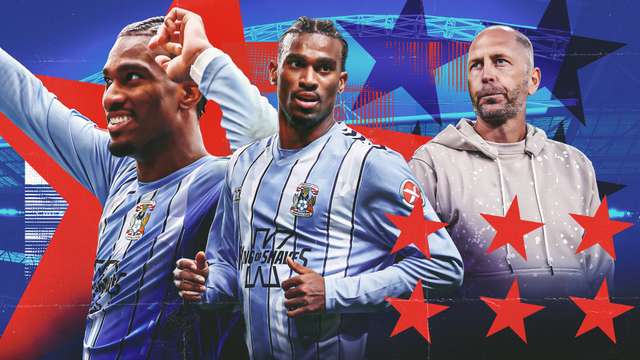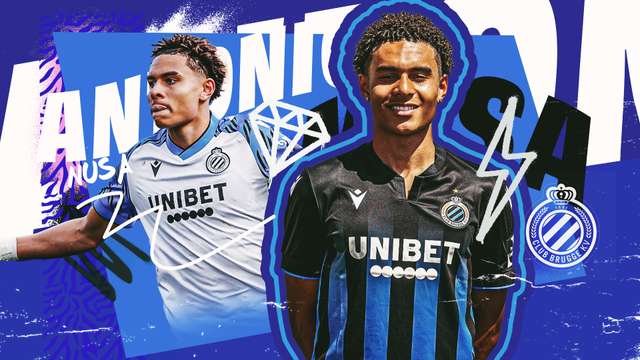TECHNOLOGY IN FOOTBALL: Colm O Mealoid Follow on Twitter
The launching of over-the-top (usually referred to as “OTT”) video services by rights holders is becoming more and more popular in the sports industry.
OTT delivery usually takes the form of a website or app (as opposed to linear cable tv delivery) whereby users pay a subscription to watch content. Think Netflix, Amazon Video and Hulu in the entertainment industry and MLB.TV and NFL Game Pass in the sports industry.
Despite the fanfare around rights-holder OTT video services, the phenomenon is not at all new.
With high-speed internet becoming prevalent, Major League Baseball first started streaming games back in 2002 and MLB.TV remains one of the most subscribed-to OTT video services in America.
It is only until recently however, that the sports industry has seen a surge in OTT services. Here are some of the rights-holders that have launched in the last number of years:
- 2008: the NFL launch Game Pass, for users outside of the US.
- 2013: the UFC launched UFC Fight Pass.
- 2014: the NBA partnered with ESPN to stream games out-of-market and subsequently bundled this services in with NBA Game Pass.
- 2015: PGA Tour launched PGA Tour Live and the NFL launch NFL Gamepass.
- 2016: The IOC launch the Olympic Channel, reportedly allocating a budget of $600m over a 7-year term, although the nuance here is that it a free service and no live coverage of the Olympic Games will be shown on the online version (other than the Youth Olympic Games).
By 2021, it is estimated that the sports OTT services industry will see $22bn in revenue in the US alone.
Considering this trend - Is there an opportunity for African leagues to benefit from the OTT revolution?
Can African Football Capitalise?
With leagues in Africa gaining in popularity and with many African natives living abroad not having access to their home leagues – an OTT video service could engage those who have emigrated but still desire to consume domestic-level football.
According to the United Nations, “in 2015, most international migrants living in Africa, or 87 per cent of the total, originated from another country of the same region” it could be beneficial for rights holders to capitalise on OTT.
With an estimated 200,000 plus Nigerians living in the UK, there appears to be a clear opportunity for the Nigerian Premier League, the Nigeria Women League and even the youth tournaments to tap into this market to engage fans and to increase revenue.
Crucially, it doesn’t take much to set up a basic OTT product. With a small investment in technology and a platform like Sportego’s Fanlink , any rights holder can become their own broadcaster, with their investment likely to be returned multiple times.
Advantages of an OTT services?
1. Revenue
The first advantage is an obvious one. If fans are willing to pay for content, why not provide it? In a recent survey carried out by an NFL team, 63% of fans said that they would be willing to pay for OTT content. Media rights can still be sold to traditional tv broadcasters, with the OTT services geo-blocked in the territories where rights have been sold.
2. Reaching new audiences
Linked to revenue generation above, an OTT service allows an organisation to reach fans that it previously couldn’t. For example, certain territories may not have significant enough audiences to entice broadcasters, but there may still be significant audiences in that territory that will consume and pay to watch games. Reaching new audiences will lead to increased attendances, brand recognition and interest from sponsors.
3. Getting to knowing your fans
One of the key trends in the sports industry in recent years is the use of data. Rights holders and teams are quickly realising the benefits of analysing their fanbase: their likes, their interests, their purchasing patterns and the fan journey. A properly managed OTT service allows organisations to tailor their offering to the fans, leading to better fan engagement and revenue generation opportunities. This valuable data is not available when content is shared through linear broadcasters or social media platforms.
4. Effective Marketing & Sponsor Activation
If an OTT service is carried out through a mobile app, it offers a much more effective way of reaching fans with new offers and sponsor activations. Push notifications see a much higher click-through rate than email and social media posts. Similar to the previous point, it allows sponsors to provide different messages to segments of fans, ensuring better activation and return-on-investment on sponsorship.
The future of Sports Broadcasting
Could we see more club teams getting in on the act next? Sports teams have had linear TV channels for years: MUTV launched back in 1998 but only this year moved to an OTT subscription service (although not available in the UK due to rights restrictions). Dugout are providing an avenue for teams to generate revenue from behind-the-scenes content through advertising, and DAZN are trying to become the “Netflix of Sport”, but such platforms take away from the data capture advantage, the ability to personalise the fan experience and to nurture the link to those fans.
Facebook have just recently rolled out “Facebook Watch” in the US, a video content tab that lets users subscribe to their favourite content. It appears Facebook will also allow advertising during content; thereby allowing a football club to generate direct revenue through the Facebook platform. Is this the future for OTT sports viewing? While it may seem a cost-effective revenue generator, rights holders should be wary of their fans being Facebook-only and therefore the only medium for connecting to those fans, which will come at a price.
How the future will pan out in terms of OTT video services is unclear. What is clear however, is that audiences are moving away from linear TV to OTT services. Even the most highly-valued sports properties like the Premier League and the NFL are seeing significant declines in traditional, linear TV figures. The massive benefits of an OTT service cannot be ignored for too much longer, perhaps it is time for sport in Africa to capitalise.
Colm O Mealoid is the COO of www.Sportego.ie , a data-driven fan engagement agency based in Ireland. Sportego’s Fanlink platform allows sports organisations to stream content live to their fans. Get in touch at colm@sportego.ie to learn more.




